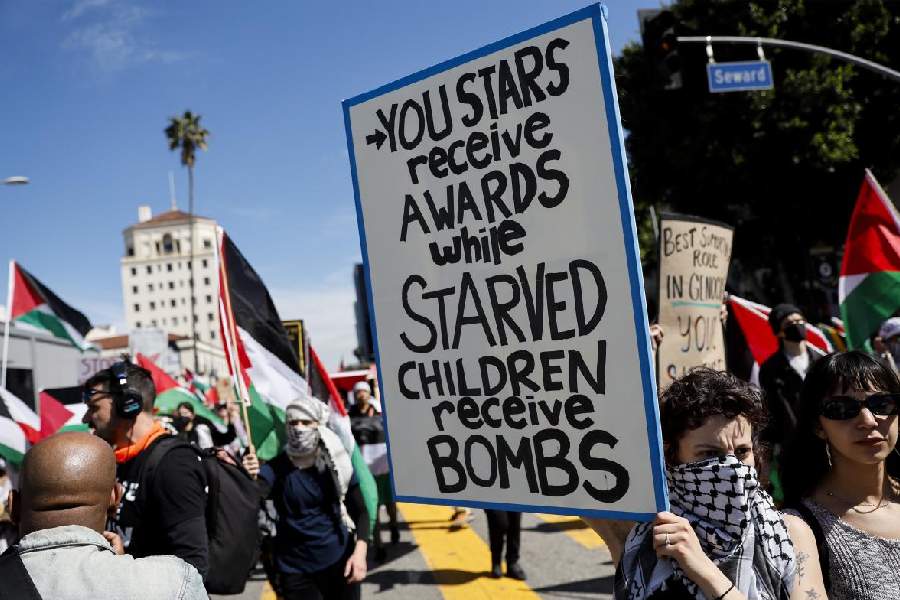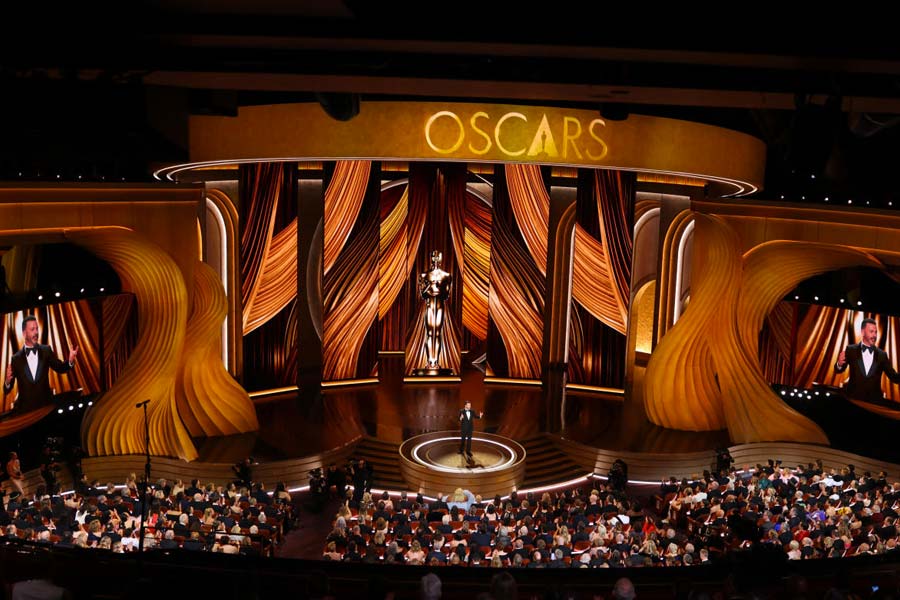Protests over Israel's war in Gaza snarled traffic around the Academy Awards on Sunday, slowing stars' arrival at the red carpet and turning the Oscar spotlight toward the ongoing conflict.
Scattered demonstrations were held in the vicinity around the Oscars on Sunday. Los Angeles police, which had expected protests, beefed up their already extensive presence. The Dolby Theatre and the red carpet leading into it are cordoned off for several blocks in every direction.
But protesters carrying signs and chanting for ceasefire disrupted traffic near security checkpoints on Sunset Blvd. Some arrivals were slowed by as much as an hour. Some protesters shouted “Shame!” at those trying to reach the Oscars. Police in helmets and wielding batons declared an unlawful assembly and threatened arrest.
Several attendees, including Billie Eilish and Finneas, best song nominees for “What Was I Made For?” from “Barbie,” wore pins for Gaza. Ava DuVernay and Ramy Youssef were also among those wearing pins.
The Oscars, kicking off on ABC at 7 p.m. EDT Sunday, are springing forward an hour earlier than usual due to daylight saving time. But aside from the time shift, this year's show is going for many tried-and-true Academy Awards traditions. Jimmy Kimmel is back as host. Past winners are flocking back as presenters. And a big studio epic is poised for a major awards haul.
“Oppenheimer,” the blockbuster biopic, is widely expected to overpower all competition — including its release-date companion, “Barbie” — at an election-year Oscars that could turn into a coronation for Christopher Nolan.
Still, much is circling around this year's show. Aside from the Israel-Hamas war, the war in Ukraine will be on some attendees' minds, particularly those of the journalist filmmakers behind the documentary favorite, “20 Days in Mariupol.”
“Our hearts are in Ukraine,” said Mstyslav Chernov, the Ukrainian filmmaker and AP journalist who directed “20 Days in Mariupol.”
And with the presidential election in full swing, politics could be an unavoidable topic despite an awards season that's played out largely in a vacuum.
Hollywood also has plenty of its own storm clouds to concern itself with.
The 2023 movie year was defined by a prolonged strike over the future of an industry that's reckoning with the onset of streaming, artificial intelligence and shifting moviegoer tastes that have tested even the most bankable brands.
The academy, while also widely nominating films like “Killers of the Flower Moon” and “Poor Things,” embraced both “Oppenheimer,” the lead nominee with 13 nods, and Greta Gerwig's “Barbie,” the year's biggest hit with more than USD 1.4 billion in ticket sales and eight nominations.
Historically, having big movies in the mix for the Oscars' top awards has been good for broadcast ratings. The Academy Awards' largest audience ever came when James Cameron's “Titanic” swept the 1998 Oscars.
Last year's ceremony, where a very different best-picture contender in “Everything Everywhere All at Once” triumphed, was watched by 18.7 million people, up 12 per cent from the year prior.
ABC and the academy are hoping to continue the upward trend after a nadir in 2021, when 9.85 million watched a pandemic-diminished telecast relocated to Los Angeles' Union Station.












